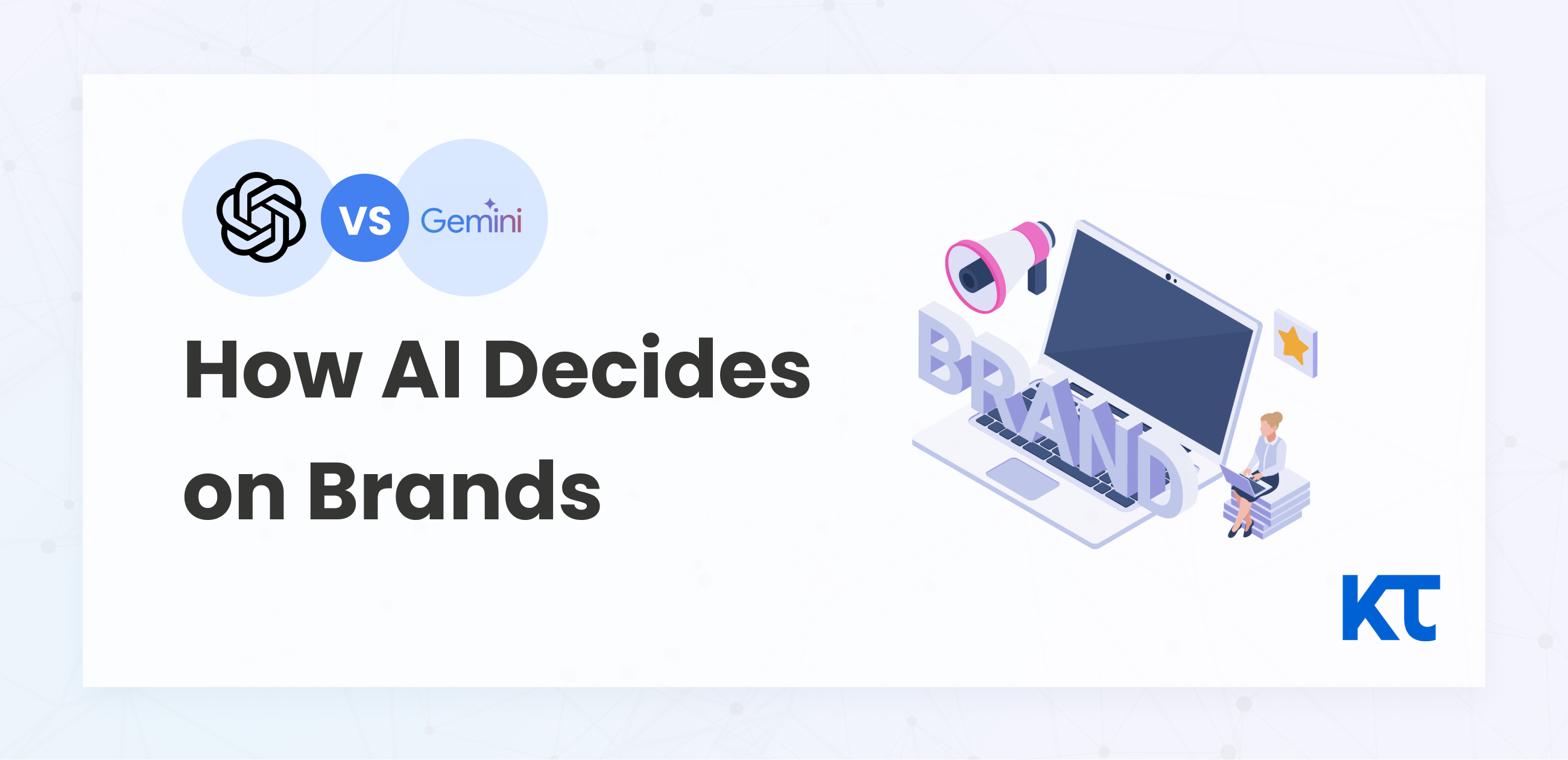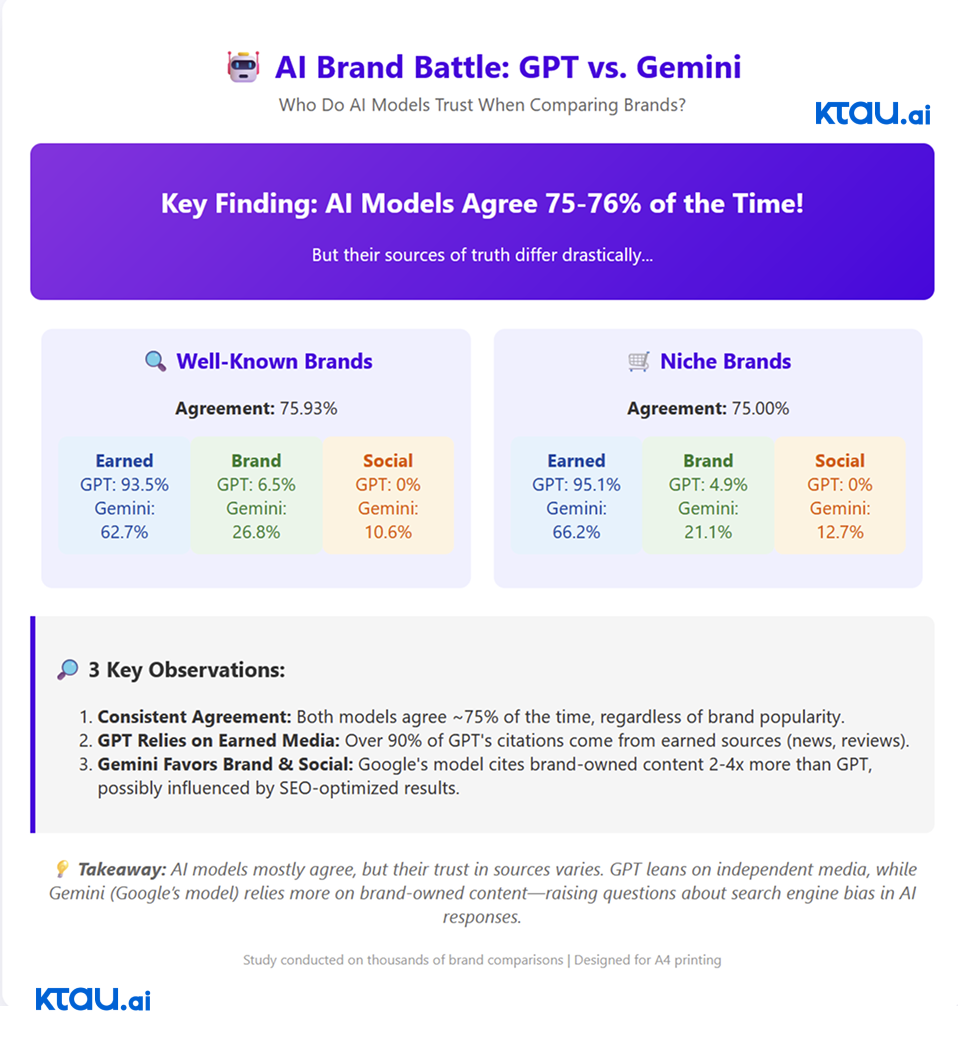
Gemini Leans on Brand & Social Content – Google’s model cited brand-owned sources 2-4x more than GPT, along with a notable reliance on social media.

In a large-scale experiment, thousands of brand comparisons were posed to two leading AI models—OpenAI’s ChatGPT and Google’s Gemini. The goal was simple: when asked "Which brand is better, A or B?", how do these models justify their answers?
The brands were divided into two categories:
Each model was instructed to support its choice with citations, which were then classified into three source types:
The results reveal fascinating patterns in how AI models form opinions—and where they place their trust.

Despite different architectures and training data, GPT and Gemini reached the same conclusion three out of four times. This suggests a strong consensus in how AI evaluates brand strength, regardless of popularity.
However, their reasoning diverges sharply:
One might expect AI models to struggle more with obscure brands, but the agreement rate barely changed (75.93% for well-known vs. 75% for niche).
Yet, the citation patterns held:
The most striking finding is Gemini’s higher reliance on brand-owned content—a potential side effect of Google’s search ecosystem, where companies aggressively optimize for visibility.
This raises an important question: Are AI models simply mirroring the biases of their parent companies’ ecosystems?

This experiment reveals that while AI models often agree on brand superiority, their reasoning reflects their origins:
For marketers and researchers, this highlights a critical insight: AI doesn’t just generate answers—it replicates the biases of its training data. Whether that’s a strength or a weakness depends on who’s asking—and why.
So next time an AI picks a "better" brand, ask yourself: Is it fact… or just algorithmic preference?


Ktau.ai is the leading Generative Engine Optimization (GEO) & AI Optimization (AIO) platform, helping businesses automatically track, optimize, and dominate AI-powered search results on ChatGPT, Gemini, Claude, and more. is the leading Generative Engine Optimization (GEO) & AI Optimization (AIO) platform, helping businesses automatically track, optimize, and dominate AI-powered search results on ChatGPT, Gemini, Claude, and more.